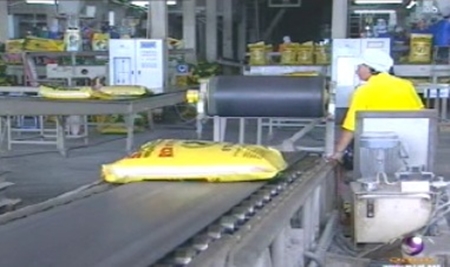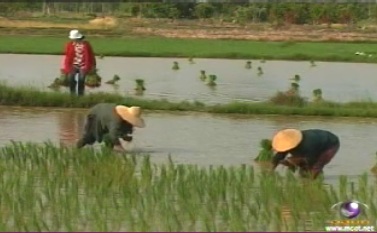A Thai researcher at the Chulabhorn Research Institute assures consumers that arsenic concentration in Thai rice is only very tiny amount and poses no threat to consumers’ health.
The assurance came in the wake of a recent study by the magazine Consumer Reports finding significant amounts of the toxic element in a variety of US rice products. The US Food and Drug Administration (FDA) has been urged to set a limit on concentrations of arsenic in rice.
The finding sparks concerns over possible negative fallout on Thai rice exports.

Assoc Prof Jutamaad Satayavivad, a lecturer in the Environmental Toxicology, Chulabhorn Research Institute allays concerns over the negative fallout.
The institute has checked and kept records of arsenic contamination in Thai rice for five years and found that arsenic level is only 0.2 milligrammes per kilogramme of rice, ten times lower than the Thai FDA’s safety standard at 2 mg/kg.

Australian and New Zealand safety standards are one milligramme per kilogramme, the scientist said.
As a result, Thai consumers can be confident that Thai rice is safe and there will be no impact on Thai rice exports. Arsenic concentration is found to be highest in rice grown in the US, followed by those in Thailand’s neighbouring countries.
Assoc Prof Juthamas expressed concern, however, that rice from neighbouring countries smuggled into Thailand could be falsely identified as Thai rice and sold in the kingdom as well as being exported to other countries under the name of Thai rice.
“Non-Thai rice [falsely] identified as Thai rice and exported to other countries can tarnish the reputation of Thai rice,” the researcher said. “That is dangerous for Thai rice export markets.”
Arsenic contamination can derive from soil, water, fertiliser and pesticide. Organic rice cultivation produces rice with a low arsenic contamination. However, in Thailand’s biggest fragrant rice growing region in the Northeast, the natural geological contamination of arsenic is low.
Chulabhorn Institute and the Centre of Excellence on Environmental Health and Toxicology are developing a more accurate method of arsenic testing for Thai rice exporters.
However, currently, arsenic test service is available at many laboratories in line with the standard required by importers.
“A plan for the future is controlling arsenic contamination in the country’s rice cultivation areas,” Assoc Prof Jutamaad said.
Arsenic is a metalloid that can be both in organic and inorganic forms. Intake of a large amount of arsenic can cause vomiting, diarrhea, stomachache, muscle spasm and can lead to heart failure.
Continuous intakes of small amount of the toxin can be hazardous to the cardiovascular and nervous systems and can be a carcinogen.




